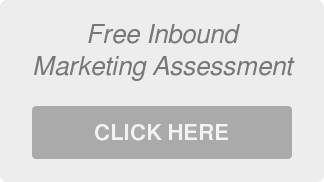 When it comes to driving traffic, PPC campaigns are an effective and reliable way to get leads into your funnel. Since the cost of a PPC ad is directly proportional to the number of people who click on it, you can adjust your budget accordingly and ensure that your ads reach only those who are likely to be interested in what you're offering. Here are some tips to consider when creating a successful PPC ad campaign.
When it comes to driving traffic, PPC campaigns are an effective and reliable way to get leads into your funnel. Since the cost of a PPC ad is directly proportional to the number of people who click on it, you can adjust your budget accordingly and ensure that your ads reach only those who are likely to be interested in what you're offering. Here are some tips to consider when creating a successful PPC ad campaign.
1. Identify Your Goals – Before launching any PPC campaign, you should clearly understand what objectives you're hoping to accomplish. Are you looking to increase brand awareness, generate leads, or drive sales? Knowing what success looks like will help you craft the right message for your audience and measure the success of your campaign.
2. Choose Relevant Keywords – Selecting the right keywords is essential for successful PPC campaigns. The best practice is to use long-tail keywords that match user intent — i.e., words that people are likely to use when searching for your product or service.
3. Monitor Your Campaigns – You should monitor your campaigns regularly and make adjustments if needed. This includes analyzing the performance of different keywords, changing bids, and testing new ad copy to ensure that you are getting the best results from your ads.
4. Leverage A/B Testing – A/B testing is a great way to determine which version of an ad resonates more with users. Test different elements such as call-to-action, visuals, headlines, and more to determine what works best for your audience and objectives.
5. Optimize Ad Copy – Writing compelling ad copy is key in any successful PPC campaign — it should grab attention, engage users, and clearly communicate why they should click on your ad.
6. Use Negative Keywords – Negative keywords can help you ensure that your ads don't show up in irrelevant searches, saving you money and ensuring that your ad is seen by the right audience.
7. Track Conversions – Tracking conversions is essential for measuring the success of any PPC campaign. You should be tracking conversions on both a macro and micro level so that you have an understanding of how users interact with your website after they click an ad. This will also give you insight into which keywords are more effective at driving desired outcomes.
8. Utilize Automation – Automating certain aspects of your PPC campaigns can help you save time, money and ensure that you are getting the best results from your ads. Using automated bidding strategies, for example, can help you stay on top of market changes and adjust bids in real-time to get the most out of your budget.
Remember that PPC campaigns require ongoing maintenance in order to keep them relevant and competitive. Regular reviews of data and adjustments based on those findings should become part of your regular routine.





